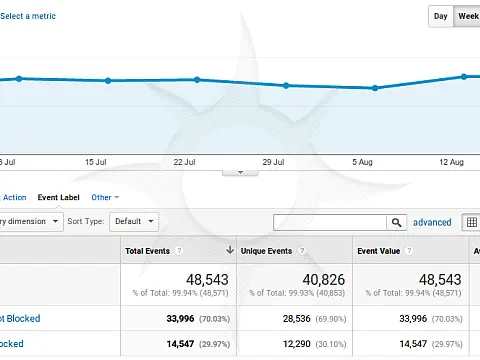How Credit Card Companies Exploit Your Purchase HistoryDiscover the shocking truth about how credit card companies use your purchase history to their advantage. Protect yourself by understanding their tactics.
Credit card companies are subject to stringent privacy and data protection requirements, but they still have access to your transaction history. Although credit card issuers gather and retain information about your purchasing patterns for a variety of uses, including managing your account and preventing fraud, it is not customary for them to sell your purchase history to advertising directly.
Credit card companies may have partnerships with other businesses, including data analytics companies, that offer insights into consumer spending trends. Advertisers may find these companies' analysis of anonymized and aggregated data useful in spotting patterns and consumer behaviour. Usually, the supplied data has been anonymised and devoid of any personally identifiable information, however with so much information out there about us, it's probably not that hard to join dots together.
These data analytics companies can target you with tailored offers and incentives by looking at your purchasing history, but they can also use this information for purposes that might not be in your best interest. How many times have you gone to a shop and bought an item using a credit or debit card, only to see adverts for the same or similar products appear in your news feeds a few days later?
It's critical to comprehend their strategies and take precautions against possible exploitation.
The Data Collection Process
Learn how credit card companies collect and analyze your purchase history to gain insights into your spending habits.
Credit card firms use a variety of techniques to gather and examine your purchasing history. Each time you use your credit card to make a purchase, the company keeps a record of the transaction information, which includes the merchant, the total amount paid, and the date and time of the purchase. To learn even more about your buying patterns, they also obtain information from outside sources like merchants and internet platforms. Next, to understand your preferences, interests, and financial behaviour, this data is examined through the use of advanced algorithms and machine learning techniques. Gaining knowledge about this data collection procedure will help you defend yourself against any abuse by credit card corporations.
Ever Feel Like "They" Are Watching and Listening To EVERYTHING?
Apps on your phone collect a lot of data about you, your demographics, your location, other apps, browsing history, contacts and so on. Your phone also has a unique advertising ID.
Data aggregators pay a lot of money to pull in as much data as they can from every available source, including the companies that make the apps you interact with. When you buy something, the transaction is part of your credit card history, and the sale is recorded in the merchant's system. The email you used to sign up to the merchant's website, or loyalty card program, can be used to link to your bank, and your location history to a brick-and-mortar store. Your location is also matched with other advertising IDs at the same location, and over time they can build up a picture of who you regularly associate with. By cross-referencing your interests, browsing history and purchases along with who you are in proximity to, they can target adverts to you based on your interests or those of the people with whom you most frequently are in proximity. How is this legal? Well, your advertising ID is not considered personally identifiable on its own, it's just a tracking cookie, but in aggregate, it does uniquely identify you.
Targeted Marketing
Understand how credit card companies use your purchase history to target you with personalized offers and advertisements.
Credit card companies have become skilled at exploiting your past purchases to target you with offers and adverts that are specifically tailored to you. They can customise their marketing efforts to you by studying your spending patterns and determining your preferences and interests. For instance, you can begin to receive exclusive offers and discounts from a particular clothing retailer if you shop there regularly. Likewise, if you frequently eat at particular kinds of restaurants, you can get offers for special discounts or meal incentives at those places. Although this customised advertising may be easy and appealing, it's crucial to safeguard your privacy and be conscious of how your purchase history is being utilised.
Pricing and Interest Rates
Discover how credit card companies use your purchase history to determine your creditworthiness and set pricing and interest rates.
Credit card firms utilise your purchasing history to evaluate your creditworthiness, set price and interest rates, and target you with personalised offers. They can determine your risk tolerance and degree of financial stability by looking at your past payments and spending patterns. You could be rewarded with better terms and cheaper interest rates if you regularly make on-time payments and exhibit frugal spending practises. On the other hand, you can be seen as a larger risk and charged higher interest rates and fees if you have a history of missing payments or have a lot of debt. It's critical to understand the potential effects of your purchasing history on your creditworthiness and to take precautions to keep your credit record clean.
Privacy Concerns
Explore the potential privacy risks associated with credit card companies collecting and storing your purchase history.
There may be privacy risks associated with credit card firms gathering and keeping track of your purchasing history. There are always questions regarding the usage and accessibility of this data, even though they claim that they utilise it to evaluate creditworthiness and customise offers. Your past purchases might disclose a great deal about your financial condition as well as your habits and personal preferences. Without your permission, this information might be sold to unaffiliated third parties or used for customised advertising. To make sure that your personal information is secure, it's critical to go over the fine print and comprehend your credit card company's privacy rules.
By routinely checking your credit card statements, keeping an eye on your credit report, and exercising caution when disclosing personal information online, you may take steps to preserve your privacy.
Protecting Yourself
Get tips on how to protect your privacy and limit the amount of data credit card companies can collect from your purchase history.
In this digital age, it is essential to safeguard your privacy and limit the amount of information credit card firms can obtain from your purchases. The following advice can help you protect your personal data:
- Examine the small print: Spend some time reading through and comprehending your credit card company's privacy regulations. Look for any provisions allowing them to use your data for targeted advertising or to share it with other parties.
- Examine your statements: Make sure all of the charges on your credit card are correct by regularly reviewing your statements. Notify your credit card provider right away if you see any unusual behaviour.
- Keep a regular check on your credit report: Look closely for any fraudulent activity or unauthorised accounts. Every year, you are entitled to a complimentary copy of your credit report from each of the three main credit reporting agencies.
- Exercise caution when sharing information online: Pay close attention to what you share, particularly on social networking sites. Don't provide private information online, such as your address, credit card number, or complete name.
- Opt-out of data sharing: This is a feature that many credit card issuers provide. Utilise this function to restrict the quantity of data they can gather and distribute on your past purchases.
- Make use of safe payment methods: Use virtual credit cards or PayPal, for example, when making online transactions. By preventing the business from knowing your credit card information, these techniques offer an additional degree of security.
- Turn on two-factor authentication: By turning on two-factor authentication, you may give your credit card accounts an additional degree of security. Before you can access your account, you will need to submit a second form of verification, like a special code texted to your mobile device.
- Keep your devices secure: By keeping your devices secure, you can safeguard your personal information. Make use of biometric authentication capabilities, such as fingerprint or facial recognition, and create strong, one-of-a-kind passwords.
- Be on the lookout for phishing attempts: Be suspicious of emails or messages that request personal information or your credit card number. Reputable credit card businesses won't ever request this information by text or email.
- Remain informed: Keep abreast of the most recent events and advancements in the credit card sector. You can make more informed decisions regarding your financial security and better defend yourself against potential privacy issues by keeping yourself informed.
It's crucial to read and comprehend the privacy policies offered by your credit card provider and to make use of your rights to limit how your data is shared. You can discuss your preferences about data sharing for marketing reasons and obtain further information by getting in touch with your credit card company's customer assistance if you have concerns about data privacy and the processing of your transaction history.












